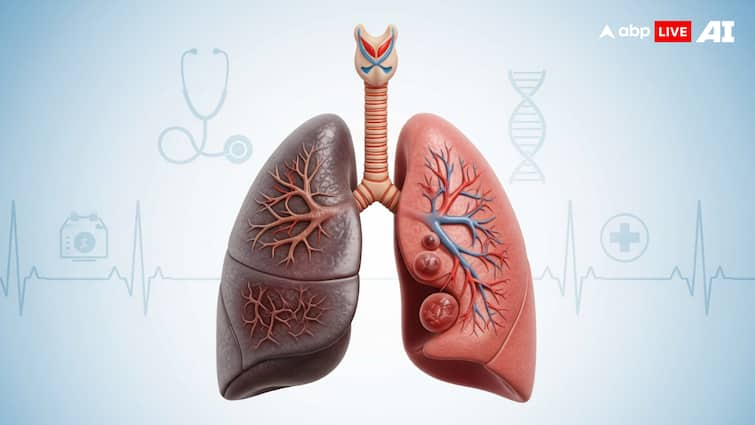Last Updated:
Sleep researchers point out that a single restless night might not seem harmful, but years of such disturbance create a silent, cumulative strain on the cardiovascular system.

Why Nighttime Noise Matters More Than Daytime
Night falls, but India’s big cities rarely go quiet. The steady roar of traffic, punctuated by sudden horns and the low rumble of heavy vehicles, has become part of the urban soundtrack.
Many of us shrug it off as harmless background noise. But researchers are warning that this constant nighttime clamor is more than an annoyance, it can quietly harm the heart.
Recommended Stories
Over the past decade, a growing body of evidence has revealed a strong connection between traffic noise and cardiovascular disease. A review in Nature Reviews Cardiology reports that for every 10-decibel increase in road noise, the risk of heart conditions such as ischemic heart disease and stroke climbs by roughly three to five percent.
A large meta-analysis published in the Journal of the American Heart Association echoes that finding, linking chronic traffic noise to hypertension and heart failure even when air pollution and other factors are taken into account.
Why Nighttime Noise Matters
It isn’t just the volume of noise, but the timing. Sound levels above 60 decibels, roughly the noise of steady road traffic disrupt deep sleep, fragmenting the body’s most restorative cycles.
When we are startled awake, even briefly, the body releases stress hormones like cortisol and adrenaline. Over time these surges elevate blood pressure, trigger inflammation, and damage the lining of blood vessels.
Sleep researchers point out that a single restless night might not seem harmful, but years of such disturbance create a silent, cumulative strain on the cardiovascular system.
- A cross-sectional study in Srinagar found that residents exposed to road traffic noise above 60 decibels had more than twice the odds of developing ischemic heart disease compared to those living in quieter areas.
- The European Heart Journal has documented that chronic exposure to road noise correlates with higher rates of heart attack and stroke across multiple countries.
- Data from the European ESC Congress 2024 highlighted urban noise as an independent risk factor for early heart attacks, even in younger adults with few other traditional risk factors.
How Noise Stresses the Body
Scientists now understand the biological pathways that make nighttime noise so damaging:
- Stress hormone activation: Persistent noise stimulates the release of cortisol and adrenaline, keeping the cardiovascular system in a state of alert long after the sound has passed.
- Endothelial dysfunction and inflammation: Noise triggers oxidative stress, damaging the inner lining of blood vessels and accelerating the buildup of atherosclerosis.
- Circadian rhythm disruption: Our internal body clock depends on quiet and darkness. Nighttime noise interferes with hormonal balance and metabolic processes that normally lower blood pressure during sleep.
Even people who claim they have “gotten used to it” are not immune. Studies show that individuals who believe they sleep through traffic noise still display measurable changes in blood pressure and vascular health.
India’s Growing Urban Challenge
Indian cities such as Bengaluru, Delhi, and Mumbai present a perfect storm. Traffic volume is surging, high-rise buildings echo sound, and many homes lack soundproofing.
Monitoring by the Central Pollution Control Board shows that residential areas in several metros regularly exceed recommended night time noise limits of 45 decibels, with busy corridors often staying above 65 or 70 decibels well past midnight.
The cultural habits of late-night commerce, round-the-clock delivery services, and growing nightlife add to the problem. For millions of residents, a truly quiet night is rare, meaning their cardiovascular systems may never fully recover from daily stress.
What Can Be Done
Tackling this hidden health threat requires a combination of policy changes and personal strategies.
- Urban planning and enforcement: Cities can install noise barriers along major roads, mandate quieter road surfaces, and enforce strict limits on horn use and vehicle modifications that increase noise. Limiting heavy-vehicle traffic in residential areas after dark can also help.
- Better building design: Stronger regulations for sound insulation in new construction, double-glazed windows, and use of dense materials can reduce indoor noise exposure.
- Public health campaigns: Educating citizens about the health risks of chronic noise can build support for enforcement and encourage behavior change, such as avoiding unnecessary honking.
- Individual measures: Residents can reduce exposure by using heavier curtains, positioning bedrooms away from main roads, and running white-noise machines or fans to mask sudden spikes in traffic noise.
Balancing Growth and Health
Rapid urbanization makes traffic noise feel inevitable, but experts emphasize that mitigation is possible. Cities like Zurich and Stockholm have successfully lowered average noise levels through a mix of better road surfaces, speed management, and community education. Similar efforts could be adapted for Indian metros to protect public health while maintaining urban vibrancy.
Night time traffic noise is no longer just a background irritant; it is an under-recognized risk factor for heart disease. Global research, from Europe to India shows that chronic exposure to road noise raises the risk of hypertension, heart attack, and stroke, even after accounting for air pollution and lifestyle factors.
The danger is amplified when the noise robs people of deep, restorative sleep, triggering stress responses that quietly wear down the cardiovascular system.
For individuals, small changes like sealing windows, rearranging bedrooms, and advocating for quieter neighborhoods can make a measurable difference.
For governments, stricter noise regulations and smarter city planning are critical. The hum of a city may never fully fade, but acknowledging its impact is the first step toward healthier hearts and quieter nights.
September 18, 2025, 10:37 IST
Loading comments…
Scan the QR code to download the News18 app and enjoy a seamless news experience anytime, anywhere
Go to Source
Author: News18



